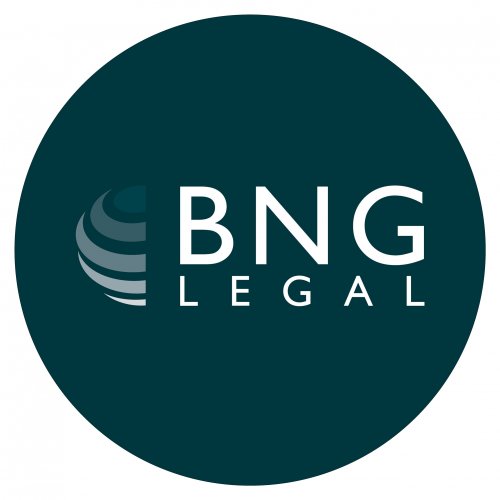Best Communications & Media Law Lawyers in Cambodia
Share your needs with us, get contacted by law firms.
Free. Takes 2 min.
Or refine your search by selecting a city:
List of the best lawyers in Cambodia
About Communications & Media Law in Cambodia
Communications & Media Law in Cambodia primarily refers to the legal and regulatory framework governing the functioning of mass media organizations and the dissemination of information through various media channels. Restrained under the Constitution, this specialized field of law primarily covers broadcasting, press regulations, online communications, telecommunications, advertising, and related intellectual property issues.
However, Cambodia's media environment is considered restrictive, with state influence existing over many broadcasting and printing media outlets. This often ignites legal conflicts concerning media censorship, defamation, and internet freedom, igniting the need for specialized media attorneys.
Why You May Need a Lawyer
You may need a Communications & Media Law lawyer in Cambodia in several situations such as setting up a media organization, facing accusations of defamation, or navigating advertising restrictions. Lawyers in this field can also guide entities on how to adhere to broadcast licenses regulations, understand complex media contracts, avoid legal issues around content censorship, and protect intellectual property rights. They also play a crucial role in disputes relating to invasion of privacy, freedom of speech, or issues involving internet and digital media laws.
Local Laws Overview
In Cambodia, the key legislation in Communications & Media Law comprises the Constitution, the Press law of 1995, Criminal Code 2010, and various regulations issued by the Ministry of Information. These form the bedrock of the Cambodian media legal landscape.
The Constitution guarantees freedom of expression but places restrictions around anything that may harm public order. The Press Law applies to print media and imparts extensive power to the government to control and censor content. The Criminal Code also includes provisions around defamation, libel, and insulting the King, which can restrict media freedom.
Frequently Asked Questions
1. How does defamation law work in Cambodia?
Defamation in Cambodia, covered under the Criminal Code, is considered a criminal act. This includes spoken word or written language that harms the honor or reputation of a person or institution.
2. Is censorship prevalent in Cambodia?
Yes, there have been numerous instances of media censorship in Cambodia. The government holds considerable power in controlling and censoring media content, principally under the Press Law.
3. What rights do journalists have in Cambodia?
While the Cambodian Constitution guarantees freedom of the press, journalists often face restrictions and negative repercussions in their operations, including accusations of defamation, incitement, or undermining public order.
4. Are there regulations around advertising in Cambodia?
Yes, advertising regulations exist, especially around health-related products, cigarettes, and alcoholic beverages. Compliance with these regulations is vital to avoid legal consequences.
5. Are internet and digital media laws different from traditional media laws?
Yes, internet and digital media laws include principles from traditional media laws but also deal with unique issues such as cybercrime, online defamation, and e-commerce regulations.
6. Is it essential to have a lawyer when setting up a media organization?
Even though not mandatory, having a specialized lawyer can help navigate the complex legal and regulatory setup process for a media organization.
7. Can foreign media companies operate in Cambodia?
Foreign media companies can operate in Cambodia but may face stringent regulations and possible interventions from governmental authorities.
8. Are there laws regarding broadcast licensing?
Yes, broadcast licensing is regulated by the Ministry of Information, which grants and oversees licenses for television and radio broadcasters.
9. Do intellectual property laws protect media content in Cambodia?
Yes, Cambodian law protects intellectual property rights, including copyrights related to media and broadcasting content.
10. What happens if a media outlet violates the media laws in Cambodia?
Violations can result in serious consequences, including hefty fines, criminal charges, license revocations, or forced shutdowns of the outlet.
Additional Resources
The Ministry of Information in Cambodia and the Cambodian Journalist Council for Ethics are useful resources for understanding media regulations and ethical guidelines. The Intellectual Property Rights Department under the Ministry of Commerce provides guidance around copyrights and related rights for creative works, including media content.
Next Steps
If you need legal assistance in Communications & Media Law in Cambodia, consider consulting a specialized lawyer or a law firm experienced in this field. They can provide professional guidance, defend your rights, and represent you during legal proceedings, if needed. Do your research, and choose a lawyer who is well-versed in the dynamic media environment and its legal complexities in Cambodia for optimal assistance.
Lawzana helps you find the best lawyers and law firms in Cambodia through a curated and pre-screened list of qualified legal professionals. Our platform offers rankings and detailed profiles of attorneys and law firms, allowing you to compare based on practice areas, including Communications & Media Law, experience, and client feedback.
Each profile includes a description of the firm's areas of practice, client reviews, team members and partners, year of establishment, spoken languages, office locations, contact information, social media presence, and any published articles or resources. Most firms on our platform speak English and are experienced in both local and international legal matters.
Get a quote from top-rated law firms in Cambodia — quickly, securely, and without unnecessary hassle.
Disclaimer:
The information provided on this page is for general informational purposes only and does not constitute legal advice. While we strive to ensure the accuracy and relevance of the content, legal information may change over time, and interpretations of the law can vary. You should always consult with a qualified legal professional for advice specific to your situation.
We disclaim all liability for actions taken or not taken based on the content of this page. If you believe any information is incorrect or outdated, please contact us, and we will review and update it where appropriate.
Browse communications & media law law firms by city in Cambodia
Refine your search by selecting a city.









